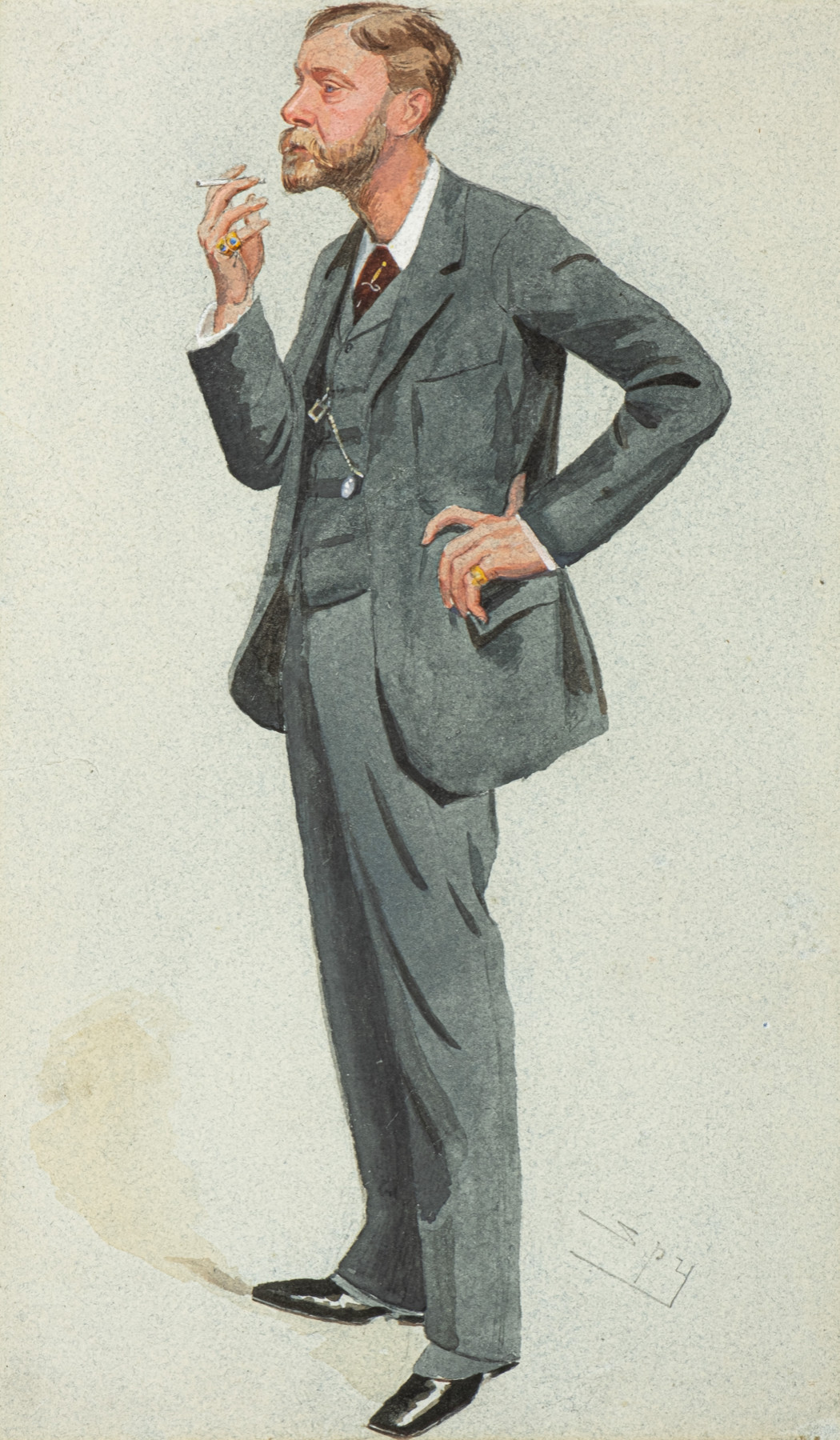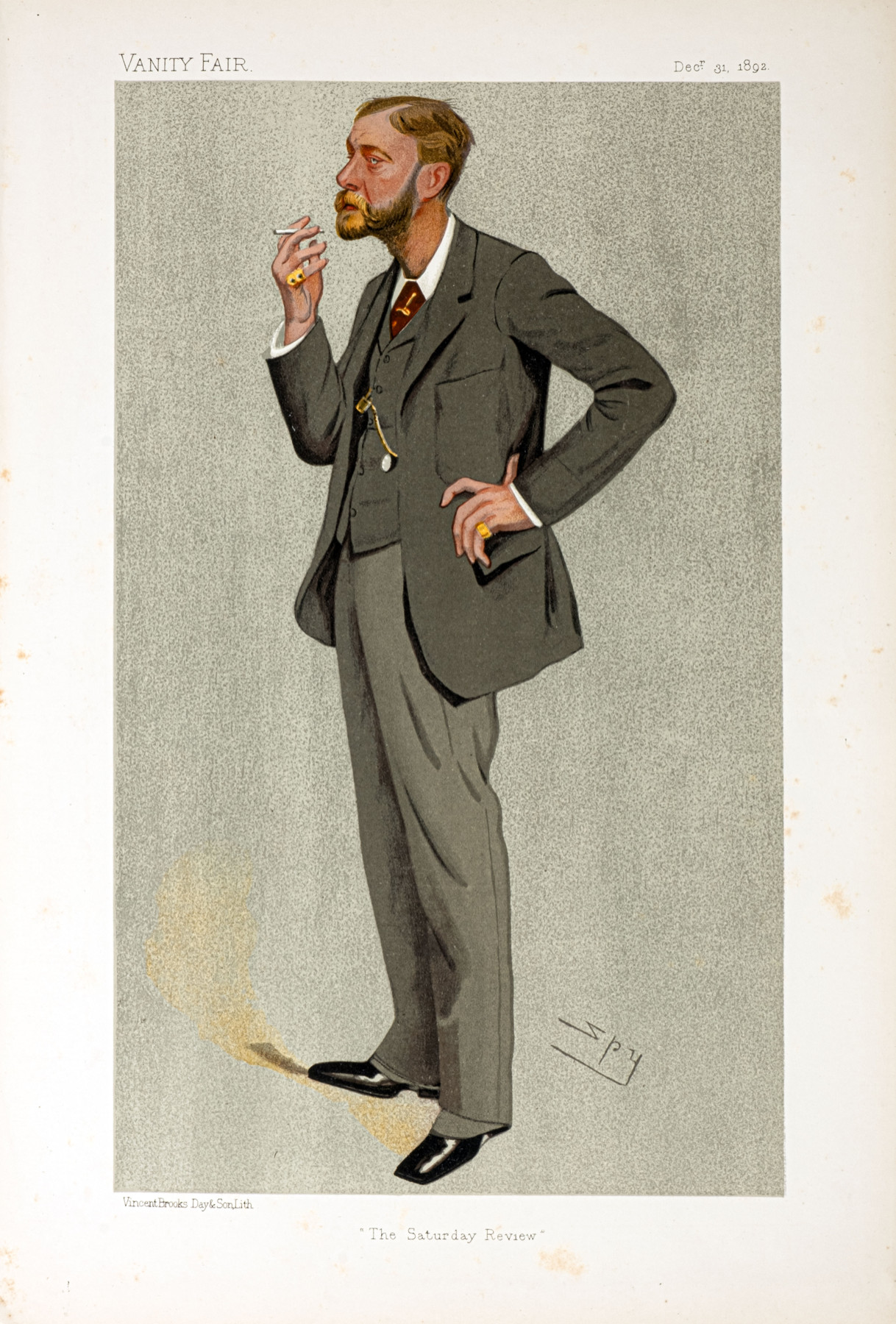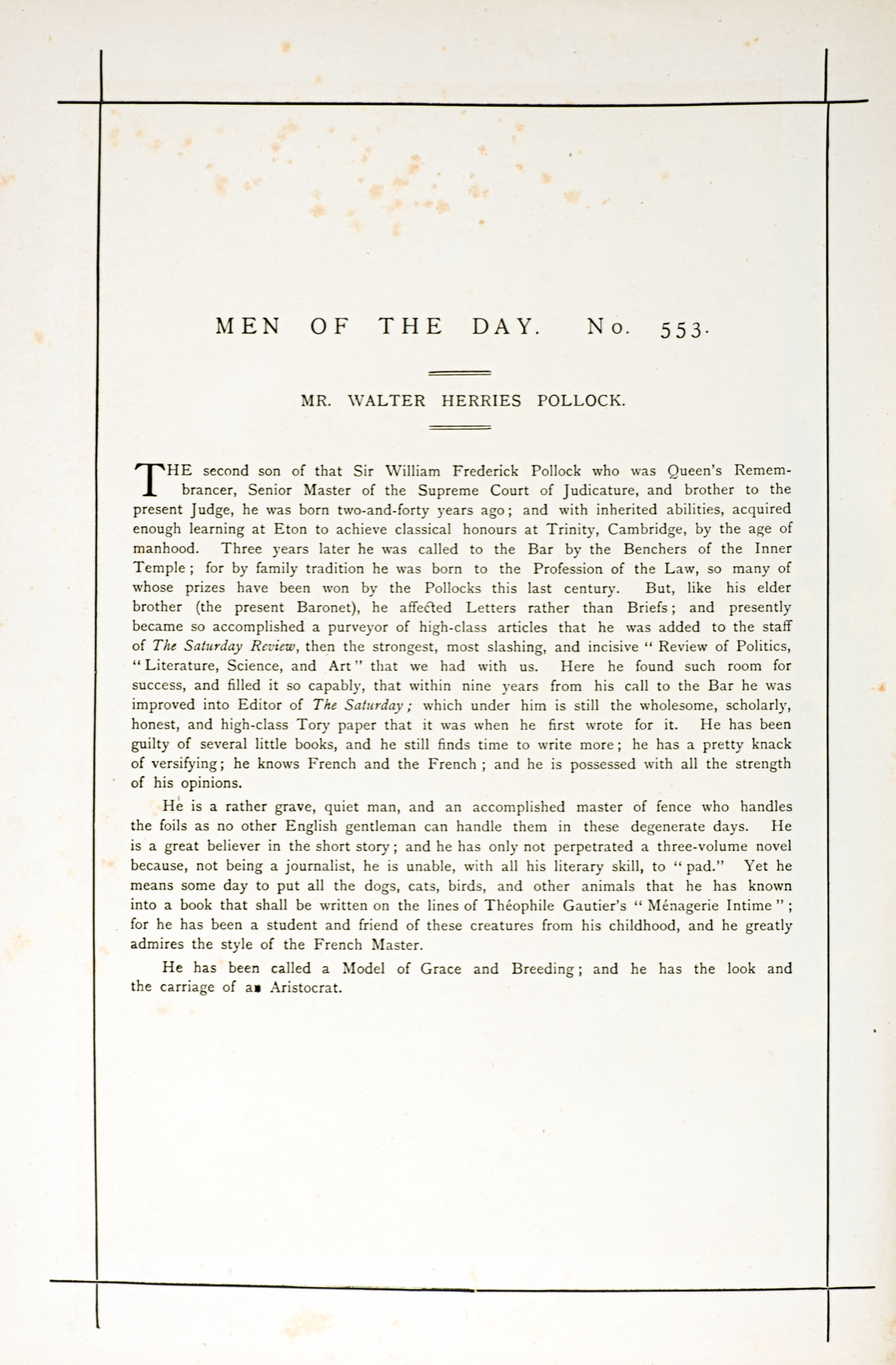


The second son of Sir William Frederick Pollock, Walter Herries Pollock (1850-1926) was best known as the editor the London weekly newspaper, the Saturday Review, from 1884 to 1894. On leaving the position, he moved to Chawton to devote himself to his writing and, in 1899, produced a major study of Jane Austen, a previous resident of that Hampshire village. His wide-ranging output included essays, novels, plays and poems, as well as translations from French, and he numbered Egerton Castle and Rudyard Kipling among the members of his wide literary circle.
In addition, Pollock participated in the first revival of historical fencing in Britain, and gained repute as the finest amateur fencer in the country. In 1897, he contributed to Fencing, Boxing and Wrestling for the Badminton Library of Sports and Pastimes published by Longmans, Green & Company.
“The second son of that Sir Willam Frederick Pollock who was Queen's Remembrancer, Senior Master of the Supreme Court of Judicature, and brother to the present Judge, he was born two-and-forty years ago; and with inherited abilities, acquired enough learning at Eton to achieve classical honours at Trinity, Cambridge, by the age of manhood. Three years later he was called to the Bar by the Benchers of the Inner Temple; for by family tradition he was born to the Profession of the Law, so many of whose prizes have been won by the Pollocks this last century. But, like his elder brother (the present Baronet), he affected Letters rather than Briefs; and presently became so accomplished a purveyor of high-class articles that he was added to the staff of The Saturday Review, then the strongest, most slashing, and incisive ‘Review of Politics, Literature, Science, and Art’ that we had with us. Here he found such room for success, and filled it so capably, that within nine years from his call to the Bar he was improved into Editor of The Saturday; which under him is still the wholesome, scholarly, honest, and high-class Tory paper that it was when he first wrote for it. He has been guilty of several little books, and he still finds time to write more; he has a pretty knack of versifying; he knows French and the French; and he is possessed with all the strength of his opinions.
He is a rather grave, quiet man, and an accomplished master of fence who handles the foils as no other English gentleman can handle them in these degenerate days. He is a great believer in the short story; and he has only not perpetrated a three-volume novel because, not being a journalist, he is unable, with all his literary skill, to ‘pad.’ Yet he means some day to put all the dogs, cats, birds, and other animals that he has known into a book that shall be written on the lines of Théophile Gautier's ‘Ménagerie Intime’; for he has been a student and friend of these creatures from his childhood, and he greatly admires the style of the French Master.
He has been called a Model of Grace and Breeding; and he has the look and the carriage of an Aristocrat.”
Mounted